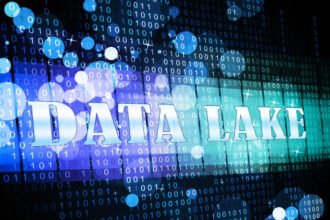This piece is contributed by Irmak Sirer, a partner and data scientist at Datascope. Working with Metis, Irmak is an instructor for their Data Science Bootcamp program which will be starting on September 2nd in New York City.&n
This piece is contributed by Irmak Sirer, a partner and data scientist at Datascope. Working with Metis, Irmak is an instructor for their Data Science Bootcamp program which will be starting on September 2nd in New York City. You can read the original posting on the Datascope website.
 One of the most frequent questions we hear, right behind “so, what exactly is a data scientist” or “what makes a great data scientist”, is “how do I become one? I should probably just get a Master’s, right?” Perhaps not anymore; rising costs, changing demand, and the Internet are disrupting this traditional path and providing two viable alternatives. At one extreme, self-learning through Massive Open Online Courses (MOOCs) give access to courses at an extremely low cost (often free), but leave it “as an exercise for the reader” to identify a suitable set of courses and tools to round out a coherent skillset. Bootcamps offer a middle ground where students can pay for a structured learning environment at a far more affordable rate compared with obtaining a Master’s Degree. So, “which path do I take?”
One of the most frequent questions we hear, right behind “so, what exactly is a data scientist” or “what makes a great data scientist”, is “how do I become one? I should probably just get a Master’s, right?” Perhaps not anymore; rising costs, changing demand, and the Internet are disrupting this traditional path and providing two viable alternatives. At one extreme, self-learning through Massive Open Online Courses (MOOCs) give access to courses at an extremely low cost (often free), but leave it “as an exercise for the reader” to identify a suitable set of courses and tools to round out a coherent skillset. Bootcamps offer a middle ground where students can pay for a structured learning environment at a far more affordable rate compared with obtaining a Master’s Degree. So, “which path do I take?”
We think the answer to that question largely depends on the student. In some cases a student will prefer attending a bootcamp whereas in other cases a student will prefer receiving a Master’s at a university or taking university courses online through MOOCs.
Here at Datascope we see great benefits from the bootcamp format, so when Metis (a part of Kaplan) contacted us about partnering to design a data science bootcamp, we jumped at the opportunity. We thought we could take all these points we see as the advantages of the format, and elevate them as much as we could. So, we designed a course that would give aspiring data scientists a lot of experience with 4-5 projects, and a guided route of several core data science concepts and approaches. Participants can quickly build the necessary foundation without the burden of teaching herself everything or paying the handsome price of a Master’s program before realizing her dream job. If you’re interested, our Data Science Bootcamp program is starting on September 2 in New York (applications due by August 11), and you can learn more about it here.
Since there are many things to consider when choosing which program works best for you, in a separate post, we do a thought experiment to compare the three experiences for a fictitious aspiring data scientist named Audrey. For the sake of brevity, the following table summarizes our thinking about what each of these experiences is like and, more importantly, who they are ideally suited for.
Masters | Self-taught (MOOCs) | Bootcamp | |
Learning | Theory-rich learning | Self-guided learning | Experiential learning |
Teachers | Live university faculty professors | Recorded university faculty professors | Practicing data scientists |
Outcome | Diploma | Certificate | Portfolio of projects |
Duration | 9 – 20 months | 6 – 18 months (part-time) | 2 – 3 months |
Tuition | $20,000 – $70,000 | $0 – $500 | $0 – $14,000 |
Networking | 1.5 years of social networking | Isolated; no in-person networking | Collaborative networking |
Projects | Internship + practicum projects | Projects on own time | Projects built in to experience |
Job hunt | University-wide recruiting day | Self-driven job search | Hiring day organized by bootcamp; talent placement manager helps with hunt |
Ideal for | People that enjoy immersing themselves in campus life and want to take time to let the new material absorb while learning in a structured environment with the full credentials of a University degree. | People that thrive with ambiguity and self-guided environments and are motivated enough to design their own curriculum around their own strengths and weaknesses. | People that want to switch or accelerate careers ASAP and want to have confidence that the switch will result in a job they will like while learning in a structured environment. |
As technology increases the rate of change of society, the most successful workers will be those that can quickly shift to new specialties and learn on the job to meet market demands. In our opinion, the bootcamp format provides the benefits of personalization, credentialing, and social learning that a Master’s degree offers, but at an accelerated rate with experiential learning. Sure it is more expensive than being self-taught, but the connection with employers and the guided, experiential learning process increases your confidence to tackle the uncertain prospect of making a career switch.
To become a data scientist, you don’t need to have postgraduate degrees, or 20 years experience, or be proficient with every data-related technique and tool under the sun. What you need is to have enough baseline knowledge and experience, and the skill to constantly adapt and learn. Bootcamps, in our opinion, are the perfect medium for making the transition.








